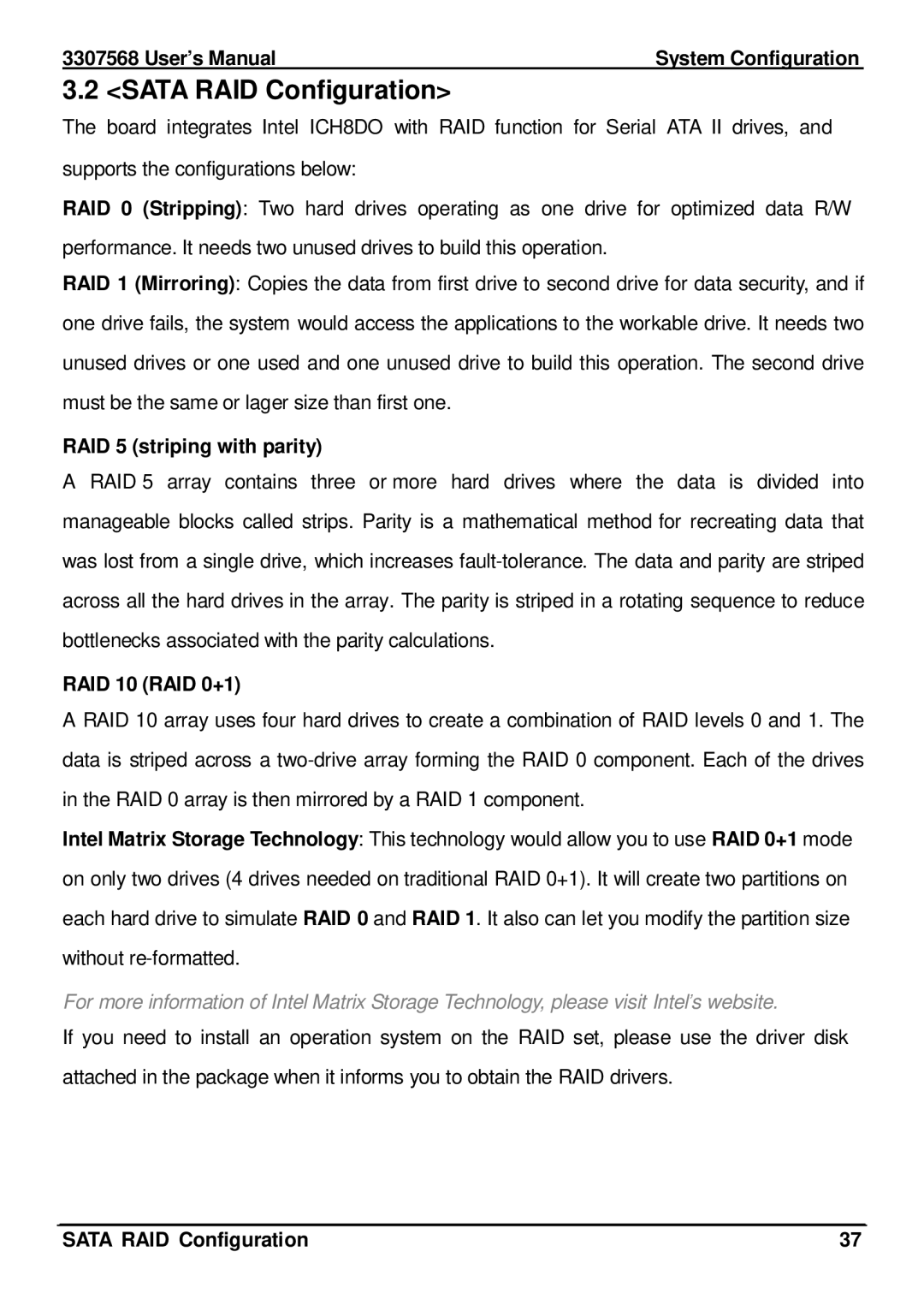3307568 User’s Manual | System Configuration |
3.2 <SATA RAID Configuration>
The board integrates Intel ICH8DO with RAID function for Serial ATA II drives, and supports the configurations below:
RAID 0 (Stripping): Two hard drives operating as one drive for optimized data R/W performance. It needs two unused drives to build this operation.
RAID 1 (Mirroring): Copies the data from first drive to second drive for data security, and if one drive fails, the system would access the applications to the workable drive. It needs two unused drives or one used and one unused drive to build this operation. The second drive must be the same or lager size than first one.
RAID 5 (striping with parity)
A RAID 5 array contains three or more hard drives where the data is divided into manageable blocks called strips. Parity is a mathematical method for recreating data that was lost from a single drive, which increases
RAID 10 (RAID 0+1)
A RAID 10 array uses four hard drives to create a combination of RAID levels 0 and 1. The data is striped across a
Intel Matrix Storage Technology: This technology would allow you to use RAID 0+1 mode on only two drives (4 drives needed on traditional RAID 0+1). It will create two partitions on each hard drive to simulate RAID 0 and RAID 1. It also can let you modify the partition size without
For more information of Intel Matrix Storage Technology, please visit Intel’s website.
If you need to install an operation system on the RAID set, please use the driver disk attached in the package when it informs you to obtain the RAID drivers.
SATA RAID Configuration | 37 |
